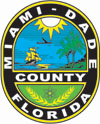| REPORT: |
Chairwoman Edmonson noted, as a result of the laws recently adopted in Tallahassee, an opportunity had to be provided at each meeting for the public to speak on the items being considered. She said that Agenda Item 1E1 would be presented today (11/13) and asked anyone wishing to make a statement on this item to please come forward.
Dr. Mae Christian, 4824 N.W. 15th Court, member of the Model City Advisory Board, appeared before the Committee, and stated that the Community Development Block Grant (CDBG) process had been a violation of the community’s right to participate. She noted a document was sent to the public to apply for funding; however, staff was unable to help retrieve the data, and the only people who were able to apply were those who had access to the required technology to convert the data. She requested that an investigation be conducted on the process.
Ms. Renita Holmes, Executive Director, Women’s Association and Alliance against Injustice and Violence, appeared before the Committee, and noted she filed a federal complaint with regard to the CDBG process, because it failed to give priority to those most affected, resulting in unfairness. She pointed out that those who had access to the CDBG funds were not those who were entitled to them, and this violation should be addressed, if the Board of County Commissioners (BCC) wanted to be fair.
Chairwoman Edmonson asked Mr. Greg Fortner, Director, Public Housing and Community Development Department (PHCD), to address some of the issues that were raised, including the Special Economic Development program and the change in the application process.
Mr. Greg Fortner said that he would like to start with some good news. He reported that the County’s CDBG ratio was at 1.34, well below the 1.5 ratio required by the United States Department of Housing and Urban Development (HUD). He noted the CDBG and Home Request for Applications’ (RFA) process was conducted in the past couple of months, and the public expressed concern with regard to the exclusion of a special economic development category. He explained that the in the past HUD did not require an underwriting for the projects; however, it now requires that all of the projects submitted have their funding committed for the completion of the project. He noted because in the past special economic development projects had been unable to fulfill this requirement, this category was excluded. He said that after reconsideration, it was decided that a supplemental RFA would be conducted within the next few weeks especially for special economic development projects.
Referring to Dr. Christian’s comments regarding the community’s lack of access to the CDBG process, Mr. Fortner explained that last year was the first time that applicants had the possibility to complete a form on line. However, he noted, the PHCD used a former version of Adobe, and both the license and the software that allowed the forms to be completed on line expired; therefore, it became necessary for the applicants to print the form and complete it manually, as in the past. He indicated that the applicants did not need to be computer savvy to print the form and complete it manually. Mr. Fortner stated that the PHCD had gone to great lengths to ensure community participation: it developed a comprehensive plan, maintained mailing lists and held focus group discussions, in order to be as inclusive as possible. However, he noted, staff was not allowed to help candidates complete applications, as advised by the Commission on Ethics and Public Trust, since the PHCD was the reviewing entity. |

